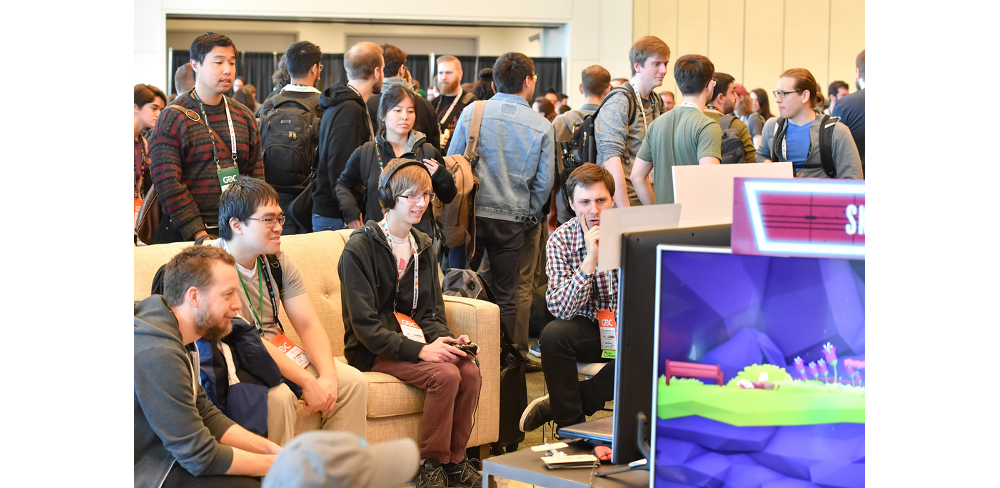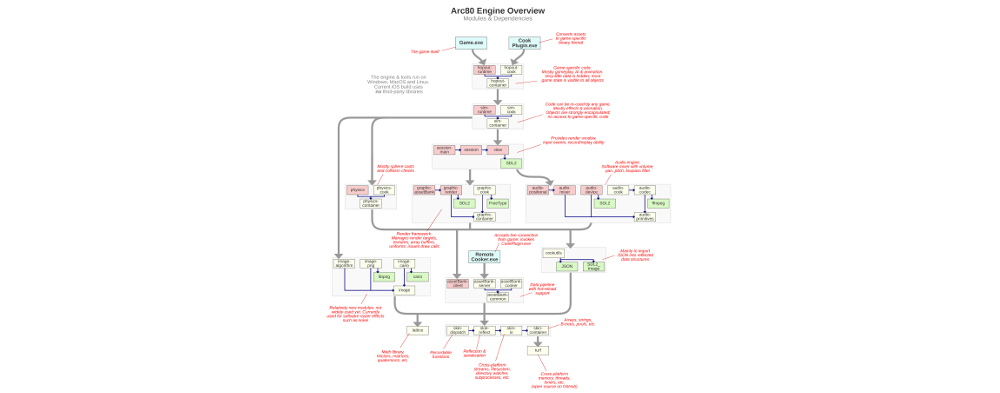Leveraging Professionals for Input
 Believe it or not, big conventions where lots of like-minded, sharing-bent people gather like GDC are great places to look for your next project's mentor!
Believe it or not, big conventions where lots of like-minded, sharing-bent people gather like GDC are great places to look for your next project's mentor!
Our team recognizes the fact we were (and still fairly are) novices without the answers, and no matter how hard we tried during Isetta's development, we just couldn't make all the "right" decisions—decisions that are made at a AAA scale. We incorporated the advice of industry professionals as a counterbalance to our inexperience, and although they were not directly involved with our team, we could use their experience to help influence the project. We used their advice at each stage of our project: pre-production, production, and post-production, but not in the same way each time.
Our pre-production phase was us figuring out how we could make this project work. We weren't yet into the technical details, but more asking questions revolving around how a software development project at our scale could work and what they, the professionals, would be interested in seeing from a project like ours. The reason for wanting to cater to their interests was...well, these may be the ones hiring us eventually, that's generally a pretty good target to aim for. By the time we started development, we had spoken with about six industry professionals along with all of the faculty at our Master's program (roughly 20 professors). We had an idea of what we wanted out of the project and how we best thought we could accomplish that, but the feedback is what molded the final direction.
Most of the advice we took at this stage was based on how we felt about it, which might not have been the best selection criteria. If we were excited about the advice, such as developing a game, we would take it, but if the advice was to make multiple games, we chose to ignore it at the time because it seemed unfeasible and intimidating. Had we taken all feedback given to us, the project wouldn't have happened because everyone has their own two cents and then some. In addition, some of the advice was counter to what we wanted to do, ranging from removing the networking system from our engine to the extreme of not developing an engine at all! As a side note, we quickly came to realize that talking to professionals was very different from talking with our faculty, because faculty mostly think of educational value and the student growth (at least, they hopefully do). The advice from the professionals leaned toward warnings and pitfalls they had experienced from their projects.
 This is the engine diagram of the Arc80 engine by Jeff Preshing, one of our interviewees. It was a great reference, and completely unsolicited (but we're very grateful for it!)
This is the engine diagram of the Arc80 engine by Jeff Preshing, one of our interviewees. It was a great reference, and completely unsolicited (but we're very grateful for it!)
In production, we were then able to ask technical questions to professionals, although usually they didn't pertain to our project specifically. The project was no longer a hypothetical situation of "we are going to do...", but rather something that we had learned from. Having some experience to pull from to ask questions was valuable, otherwise it would have been difficult to contextualize what we were trying to say. During our discussions with the engine development veterans, we discovered that talking to people more experienced than you can reveal what you don't know. As a team, we would often create solutions which worked best for our engine and made sense to us, but we didn't have reference to how others, in particular the industry, does it. Talking to professionals gave us this glimpse which was enough to confirm we were headed in the right direction or we needed to redirect ourselves. We also had our own terminology for some implementation and features, and in conversations with developers we would be introduced to the actual vocabulary, which made the problem searchable, unlike our team's informal, internal term. These conversations also gave the professionals an opportunity to ask us directly about technical details of our project, usually out of curiosity, then they would discuss how they had done it in the past, which would give us cause to reflect on our own systems.
In post-production, talking to professionals is more of bonding over a shared experience than anything. We found it very motivational to get the same votes of support for our work after we were done as we had before we started, and this might be a nice way to finish out a personal project, especially if you need validation to show others.